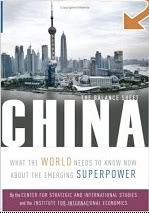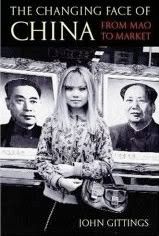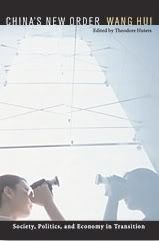Market economy shift poses national dilemma
Peter Harmsen
If there is an overall theme for this year's gathering of 3,000 lawmakers in the heart of Beijing it must be the challenge of making the economy work to the benefit of all 1.3 billion Chinese.
Economic issues are never off the agenda when the National People's Congress meets, but this year they have been especially important - and for good reason, according to analysts.
"China is moving towards a market economy, and it's encountering a lot of new problems because of this," said Zhang Xin, professor of public administration at People's University.
"The market economy can help raise the efficiency of an economy, but it's not good at making the economy more just. It can't resolve issues such as wealth distribution," he said.
As double-digit growth keep pushing China up the global ranking, it is also becoming a less equal and more divided society.
There is only so much laws can do to stem this sort of development, but even so the struggle to prevent the divide widening further will be reflected in the legislation of the coming years.
"I believe that in the coming three to five years, the distribution of wealth will continue to be the focus of the NPC," Zhang said.
The quest for fairness shows in two laws legislators are being asked to approve at the end of this session - property and corporate income tax.
The first is the most controversial piece of legislation ever in China, because it orders equal protection of private and state property.
Opponents say it devalues state ownership, and China is after all still a communist society, but proponents call the law necessary at a time of rapid development of the market economy.
"All players have equal status in the market, enjoy the same rights, observe the same rules and bear the same responsibilities," said Yin Tian, a professor at Peking University.
The corporate income tax law invokes some of the same principles of fairness, according to observers.
Once it takes effect next year, both local and foreign companies will pay the same 25 percent tax, as opposed to now, when the latter pay less than half the rates of their local counterparts.
"They have to be treated equally now, given that China has opened nearly all its markets to foreign players," said Liu Jinyong, a professor at Beijing's University of International Business and Economics.
The two laws suggests remarkable changes are under way.
"The two laws show that Chinese society is developing in the direction of more fairness, but the process has not been completed yet," said Fudan University economist Zhang Jun.
One issue concerns some analysts as the NPC enters a period where it may have to pass ever more complicated economic laws - the lawmakers' expertise.
The assembly meets just once a year in early March, far from enough for the lawmakers to become familiar with complex issues, said Zhang Huan, a professor of public policy at Beijing Normal University.
"It's open to doubt if people who spend just one or two weeks a year on this really understand the impact of a new piece of legislation on the future development of the nation," he said.
"It's not ideal, but it's not also easy to think of another way to handle this."
AGENCE FRANCE-PRESSE.
Monday, March 12, 2007.
Link




0 Comments:
Post a Comment
Subscribe to Post Comments [Atom]
<< Home